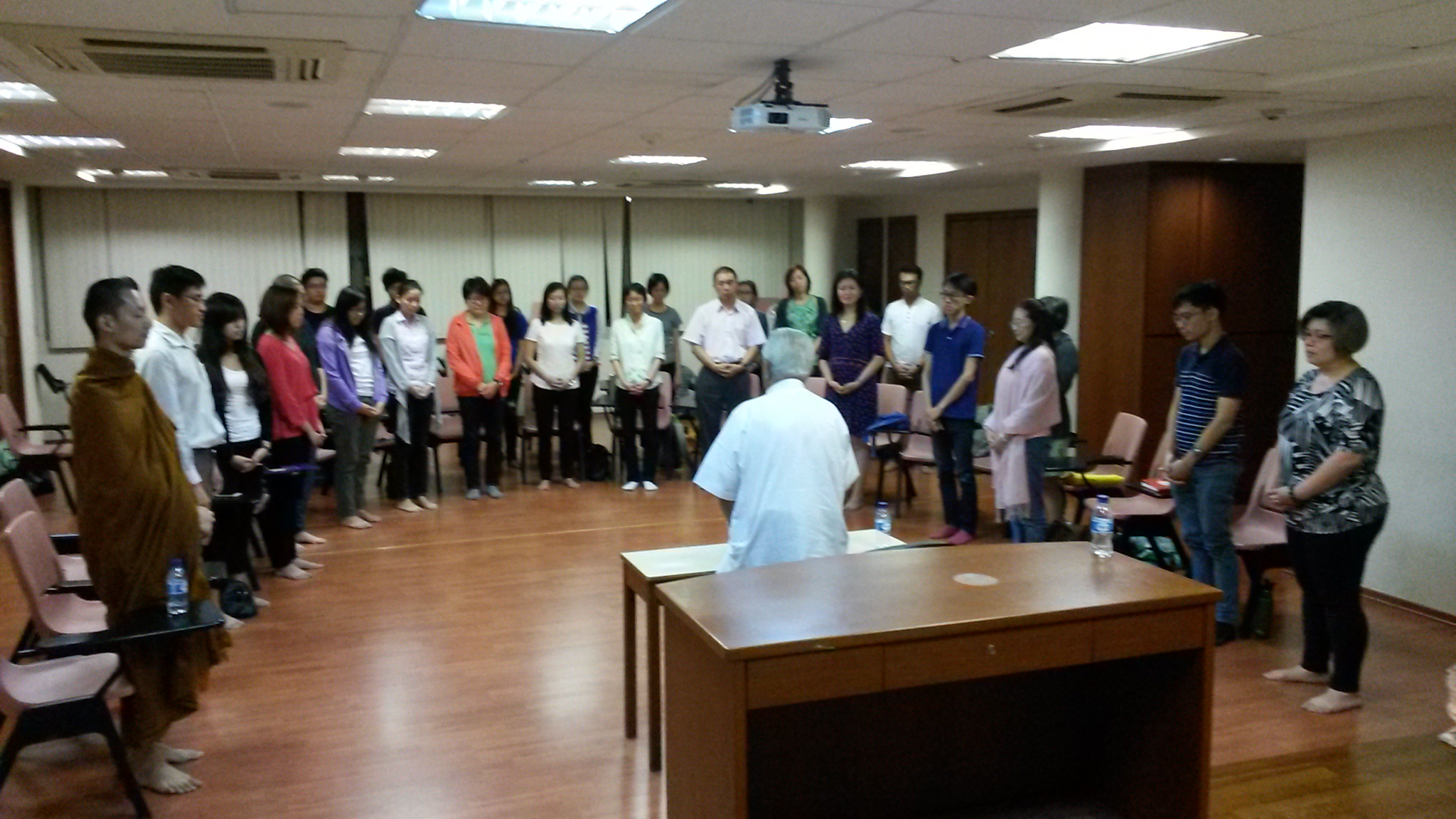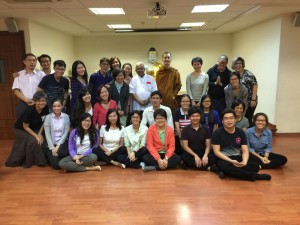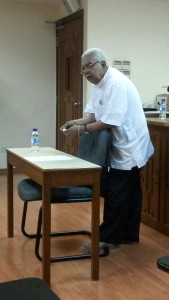By Dennis Tan
The BuddhistYouth Network is honored to have Dr. A.T. Ariyaratne, founder of the Sarvodaya Shramadana Movement to give a talk on how Buddhist leaders could develop their leadership skills from the Buddha’s teachings. The dialogue session, held at the Vimalakirti Buddhist Centre (Cheng Beng Buddhist Society), started off with a touching introduction of Dr.Ari by his assistant, Vishnu Vasu. He mentioned that he was inspired by Dr.Ari’s acts of compassion and loving-kindness that led him to quit his comfortable job in advertising to join the movement.
After the introduction, the attendees watched a short video on what the Sarvodaya movement is all about. Taken from the philosophy of Shramadana or to awaken oneself by sharing, this social change movement provides a list of programmes that help the rural poor in Sri Lanka. These programmes include the economic empowerment for the poor, microfinancing and the building of infrastructure in villages. The movement also tries to “combat” the disharmony between ethnic groups in the country by staging mass meditation events to develop a “peace of mind” for the populace.
Once the introduction of the Sarvodaya movement was over, Dr. Ari gave an inspiring speech on what are the important qualities a Buddhist leader should have. He mentioned that the person has to learn to respect all sentient beings, even a mosquito. Such a view enables us to break out from our own egos and realize that a leader is not only meant to lead but to serve others as well.
A second point he made was that we should pose this question to ourselves: “Who am I? What is my mind and body?” Dr. Ari informed us that our body is composed of the four elements (Earth, Wind, Water and Fire) thus there is no reason to differentiate one person from another. He also reminded us that the mind has no inherent quality per se but are dependent on our perceptions, thoughts and consciousness that are constantly changing. Thus, it will do us good to realize that we are all interconnected and dependent on one another.
Dr. Ari further mentioned that a leader should also practice the six/ten Paramitas or the cultivation of certain virtues. Such as getting rid of one’s greed. One has to also practice self-discipline which includes committing oneself to meditation every day.
After a short meditation activity, the dialogue session ends off with a question and answer session. One respondent asked him a question on what is the most admirable qualities of humankind. Dr. Ari replied that the ability to emanate loving-kindness to others is an important attribute that everyone should have. For it is loving-kindness that one could promote compassionate action to others.
Furthermore, he wished that all Buddhist leaders to not be discouraged about the poor response they received for the Dharma events they have organized, as even the Buddha started off with only five disciples! He encouraged everyone to establish a strong grassroots community such as creating metta circles for small groups of people to practice their meditation. Dr. Ari also wanted youth leaders to exploit the opportunities of communications and new media to spread the Dharma.



Leave a Reply